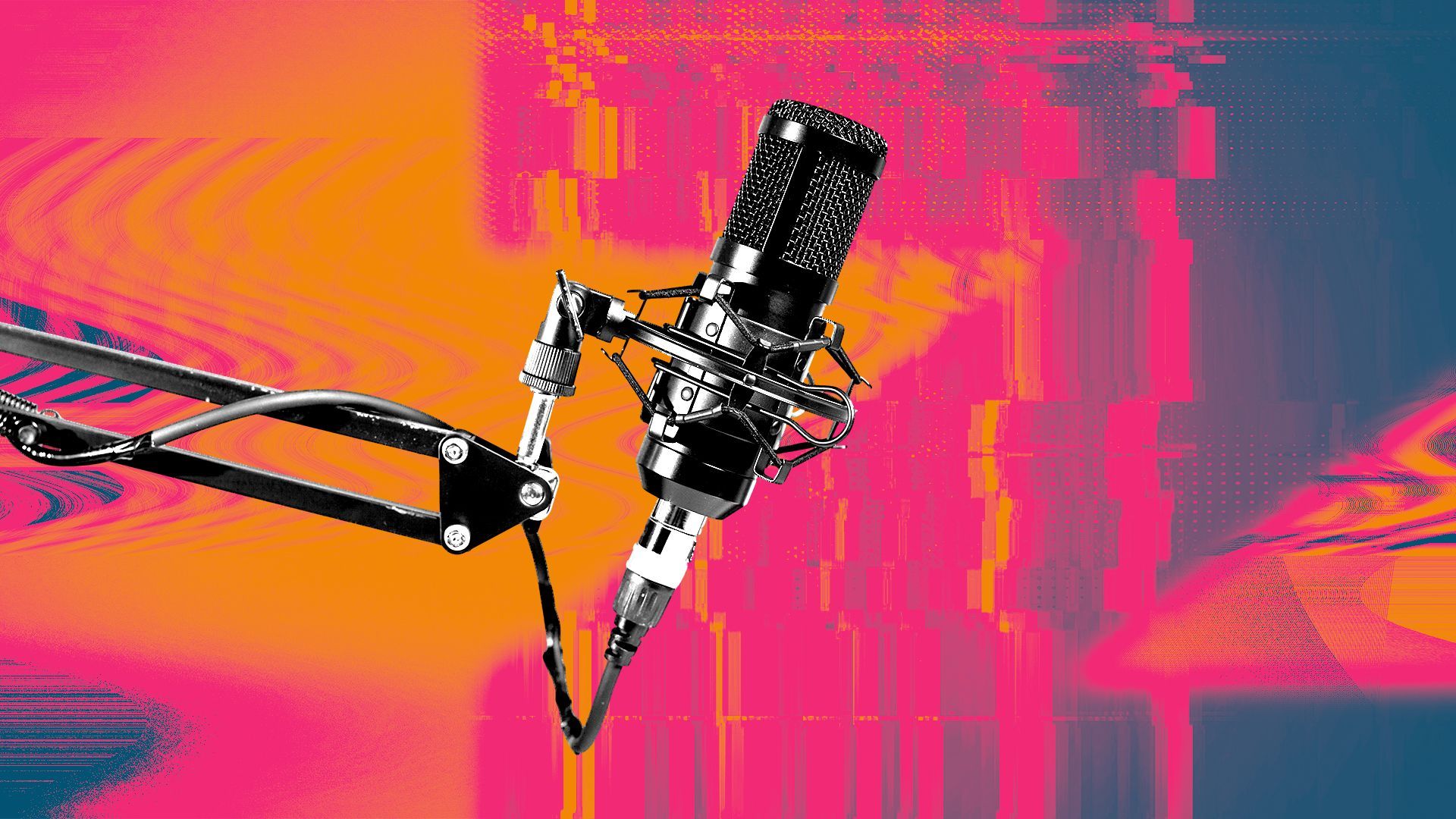
Illustration: Brendan Lynch/Axios
If you'd paid attention to MAGA media in the months leading up to the 2024 election, the surprise wasn't that young voters swung hard toward President Trump.
- The surprise was that so many people missed it.
Why it matters: Gen Z's digital world became a powerful political incubator for the Republican Party in 2024 — a force for persuasion and community-building that reshaped the youth vote in astonishing ways.
- Seemingly overnight, MAGA took command of a full-fledged social ecosystem that met many young Americans where they already were.
- It was a cultural and political revolution hiding in plain sight — yet it blindsided the Democratic establishment, which is now scrambling to understand how it happened, and how to fight back.
Zoom in: Axios reporters Erica Pandey and Tal Axelrod set out to experience the MAGA-verse online — in real time.
- We each created new accounts on TikTok — where Gen Z disproportionately gets its news — and followed a basic set of MAGA or MAGA-aligned accounts: Think Team Trump, Tucker Carlson, Charlie Kirk and Candace Owens.
- TikTok knew that Tal was a 30-year-old man and Erica was a 30-year-old woman. From there, the algorithm took control.
At first, we got what we expected: Clips from Trump rallies, viral moments from Kirk's podcasts, and segments from Fox News. Then, our experiences diverged.
- Tal was fed a steady stream of masculinity content: Endurance athlete David Goggins berating men with motivational speeches, podcaster Chris Williamson interviewing guests about male struggles.
- Erica's "For You" page zeroed in on three topics: 1) right-wing critiques of modern feminism pulling women away from marriage and motherhood; 2) debates around trans women in sports; and 3) the ethics of abortion.
The intrigue: It took less than an hour for the algorithm to move us from standard MAGA content to deeper ideological terrain — podcast clips, campus debates, and "red pill" rants about gender roles and identity.
- We didn't go looking for this content — it came to us. And it revealed a striking pattern: right-wing views on gender and identity are digitally intertwined with MAGA politics.
Dip your toe in, and the algorithm grabs your ankle:
- Interested in mixed martial arts and the UFC? You might land on a pro-Trump hype reel.
- Interested in lifestyle content? You might end up with conservative takes on motherhood and marriage.
Between the lines: Much of the gender-based content we observed wasn't overtly political or fringe — at least not at first.
- "A lot of this gets glamorized on social media," says Rachel Janfaza, a youth political analyst and writer of The Up and Up, a newsletter about Gen Z.
- "You see influencers talking about how amazing it is to be a stay-at-home girlfriend or stay-at-home mom and cook and clean."
"Trad wife" and "manosphere" videos perform extraordinarily well.
- "It's kind of this vicious cycle where these social media algorithms are naturally going to be favorable towards content that is a little bit more inflammatory and click-worthy," said Ali Mortell, the director of research at Democratic data firm Blue Rose Research.
- "And then on top of that, the political right, not just in the United States, but globally, has really leaned into that shift in the earned media environment in a way" that the left has not, Mortell added.
The bottom line: If you're not on social media, this world may seem distant — but it's central to Trump's strength with Gen Z, and a key part of why he's sitting in the White House.
